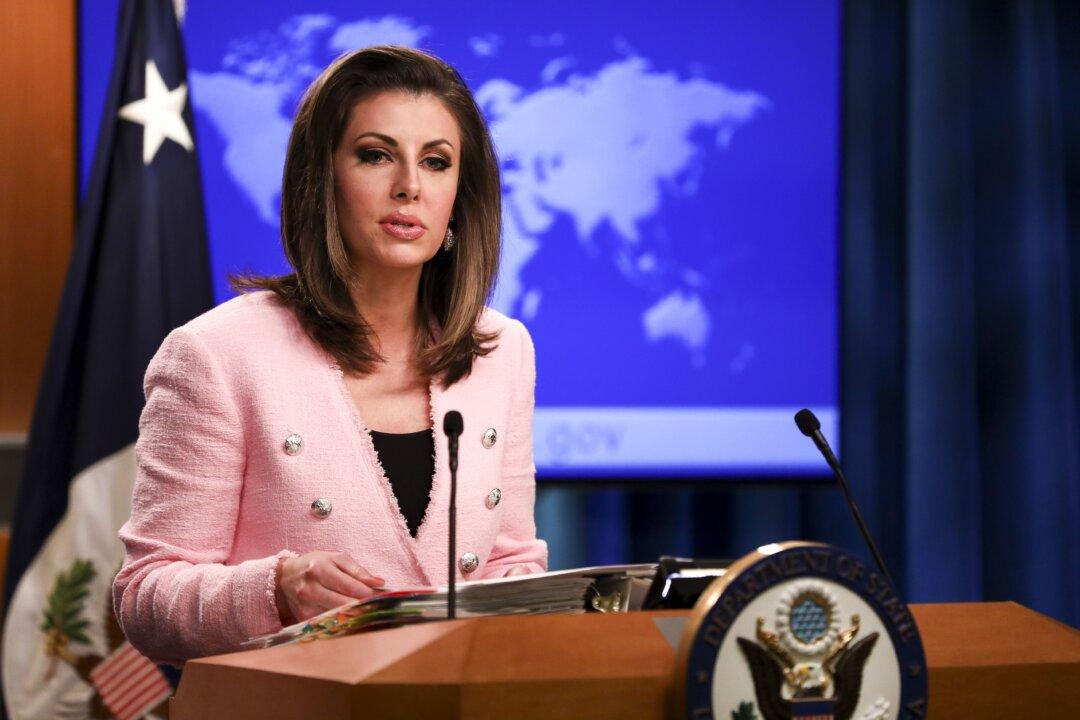The State Department said there’s a growing unity among nations to confront the Iranian regime after a report revealed that operatives linked to Hezbollah, an Iran-backed terrorist group, were caught in London stashing tons of bomb-making material in 2015.
The department also commended the UK for expanding its designation of Hezbollah as a terror group.





